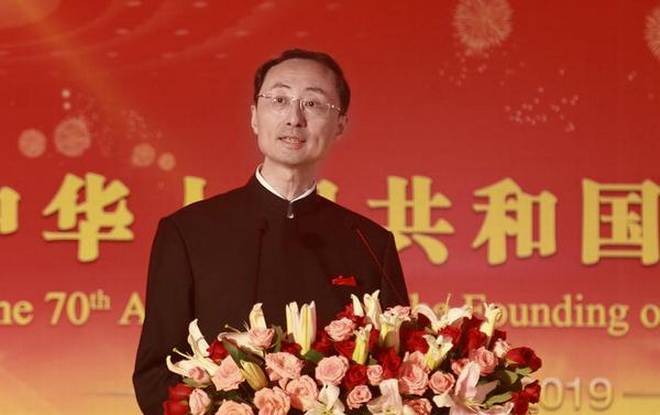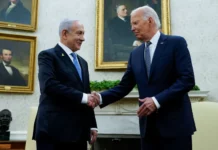NEW DELHI: India and China should resolve disputes peacefully through dialogues at the regional level and jointly uphold peace and stability in the region, Chinese Ambassador Sun Weidong said as ties between the two countries came under some strain ahead of the second informal summit between Prime Minister Narendra Modi and President Xi Jinping.
In an interview to PTI, the Chinese envoy said both India and China should go beyond the model of “management of differences” and work towards actively shaping bilateral relations through the accumulation of positive energy and forging greater cooperation for common development.
Though Xi is scheduled to arrive in Chennai on Friday for the informal summit in the ancient coastal town of Mamallapuram, both sides are yet to announce his visit, in an indication of the uneasiness over the Kashmir issue clouding the preparations for the meet. China is expected to make an announcement on Wednesday about Xi’s nearly 24-hour-long visit to India.
“At the regional level, we should resolve disputes peacefully through dialogues and consultations and jointly uphold regional peace and stability,” the Chinese ambassador said, noting that China-India ties transcend the bilateral dimension and have assumed global and strategic significance.
“The two sides should strengthen strategic communication, enhance political mutual trust, give full play to the irreplaceable guidance of the two leaders in bilateral relations, and ensure the accurate transmission and solid implementation of the consensus reached by the two leaders,” said the envoy, referring to the outcomes of first informal summit between Modi and Xi in Chinese city of Wuhan last year.
Sun also pitched for jointly maintaining peace and tranquillity along the border before a final settlement on the issue is found, noting that it is normal for neighbours to have differences. He said India and China should not let the boundary dispute affect the normal development of bilateral relations. “Before the final settlement of the boundary question, we need to jointly maintain peace and tranquillity in the border areas. I want to point out that it is normal for neighbours to have differences.
“The key is to properly handle differences and find a solution through dialogue and consultation,” the envoy said. Noting that the positive effect of Wuhan Summit is constantly unfolding, the Chinese envoy said, “We should go beyond the model of differences management, actively shape bilateral relations and accumulate positive energy. We should enhance exchanges and cooperation, promote convergence of interests and achieve common development.”
In an apparent reference to Huawei issue, the ambassador hoped that New Delhi will provide a more “fair, friendly and convenient” business environment for Chinese companies to operate in the country, asserting that both the Asian giants should forge greater cooperation to boost trade and investment.
The remarks came in the midst of the US asking leading countries to not allow Chinese telecom giant Huawei to roll out its 5G mobile networks. India is set to carry out trials for 5G services mobile network and has not taken any decision yet on whether to allow Huawei in the trials. “China encourages Chinese companies to invest in India and hopes that India will provide a more fair, friendly and convenient business environment for Chinese companies to operate in India,” he said.
The ties between India and China came under some strain after India announced the withdrawal of Jammu and Kashmir’s special status and bifurcated the state into two Union territories. China criticised India’s decision and it’s Foreign Minister Wang Yi even raised it at the UN General Assembly last month.
Days later, Chinese ambassador to Pakistan Yao Jing said that China was working for Kashmiris to help them get their fundamental rights and justice, comments which have not gone down well with New Delhi. The first informal summit between Modi and Xi took place in picturesque Chinese lake city Wuhan in April 2018, months after a 73-day long face off between the armies of the two countries in Doklam tri-juction in Sikkim sector raised fears of a war between the Asian giants.
In the summit, Modi and Xi decided to issue “strategic guidance” to their militaries to strengthen communication and build trust and understanding.
“Over the past year, the two sides have actively implemented the important consensus between the two leaders, upgraded and improved the quality of China-India relations, which embarked on the track of sound and stable development,” Sun said.
“The positive effect of the Wuhan summit is constantly unfolding. The mutual trust and friendship between the two leaders are being extended to all sectors, localities and peoples of the two countries and translated into tangible achievements,” he said.
In Mamallapuramon summit, the focus of the talks is likely to be on steps to ensure mutual development and expanding overall ties. On the boundary question, the envoy said that over the past decades, not a single bullet has been fired at the China-India border area, and peace and tranquility have been maintained. “Boundary question is only part of China-India relations. We need to keep it in the larger picture of China-India relations and do not let the boundary dispute affect the normal development of bilateral relations,” he said.
The envoy said China and India should strengthen communication and coordination on international and regional affairs.
“The uncertainty of the international situation poses common challenges to both China and India. Strengthening solidarity and cooperation between us is an opportunity for our respective development and the world at large,” he said. “I am convinced that China and India have the vision and capability to chart a course of common development and win-win cooperation among emerging countries and contribute to the building of a community with a shared future,” he added.
Talking about issues relating to trade, Sun said China has long been India’s largest trading partner and India is China’s largest trading partner in South Asia, adding since the beginning of the 21st century, bilateral trade has grown from less than USD 3 billion to nearly USD 100 billion, an increase of about 32 times. “More than 1,000 Chinese companies have increased their investment in industrial parks, e-commerce and other areas in India, with a total investment of USD 8 billion and 200,000 local jobs created,” he said.
At the same time, he said there is huge potential and broad prospects for expanding economic and trade cooperation. “China encourages Chinese companies to invest in India and hopes that India will provide a more fair, friendly and convenient business environment for Chinese companies to operate in India,” he added. PTI







